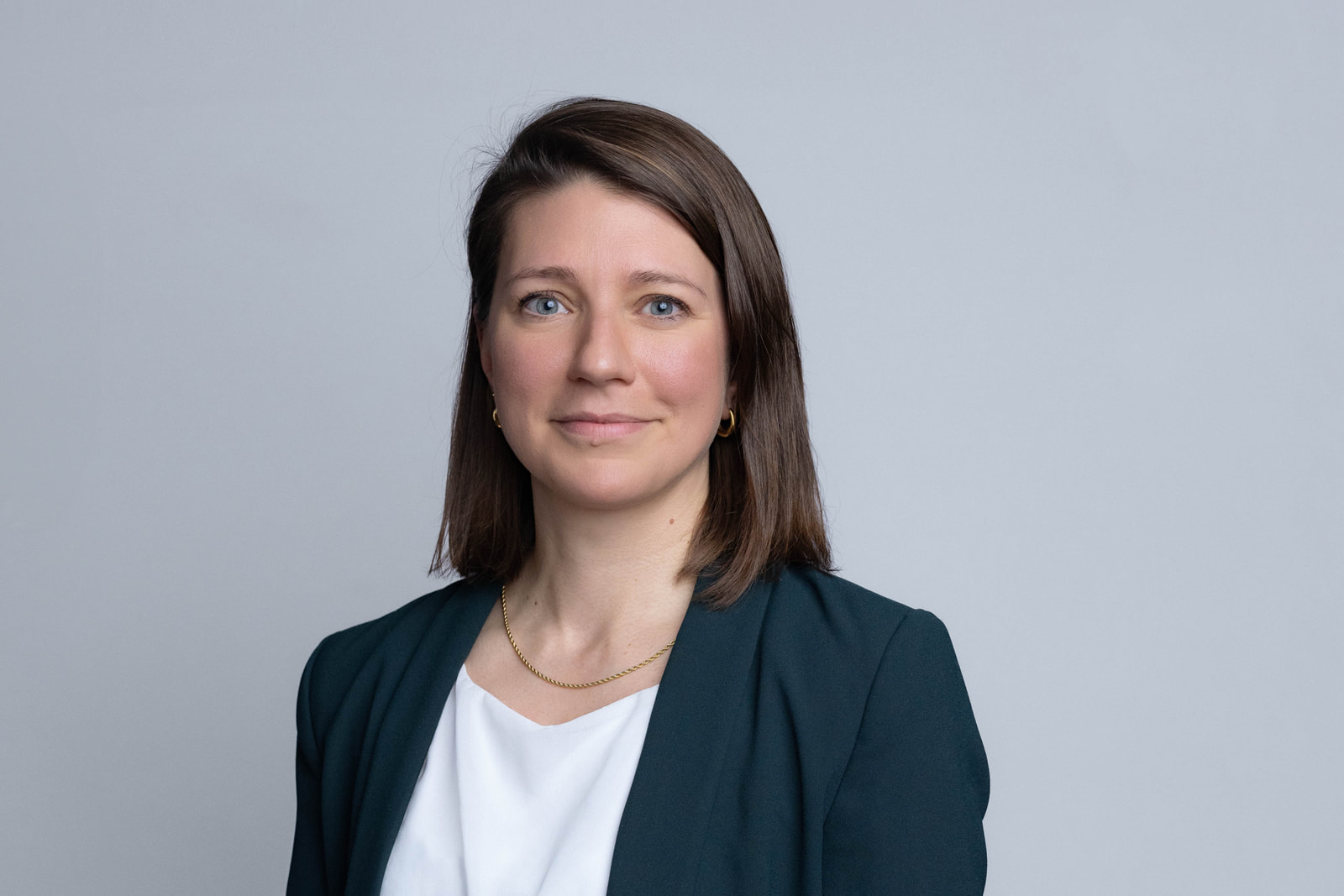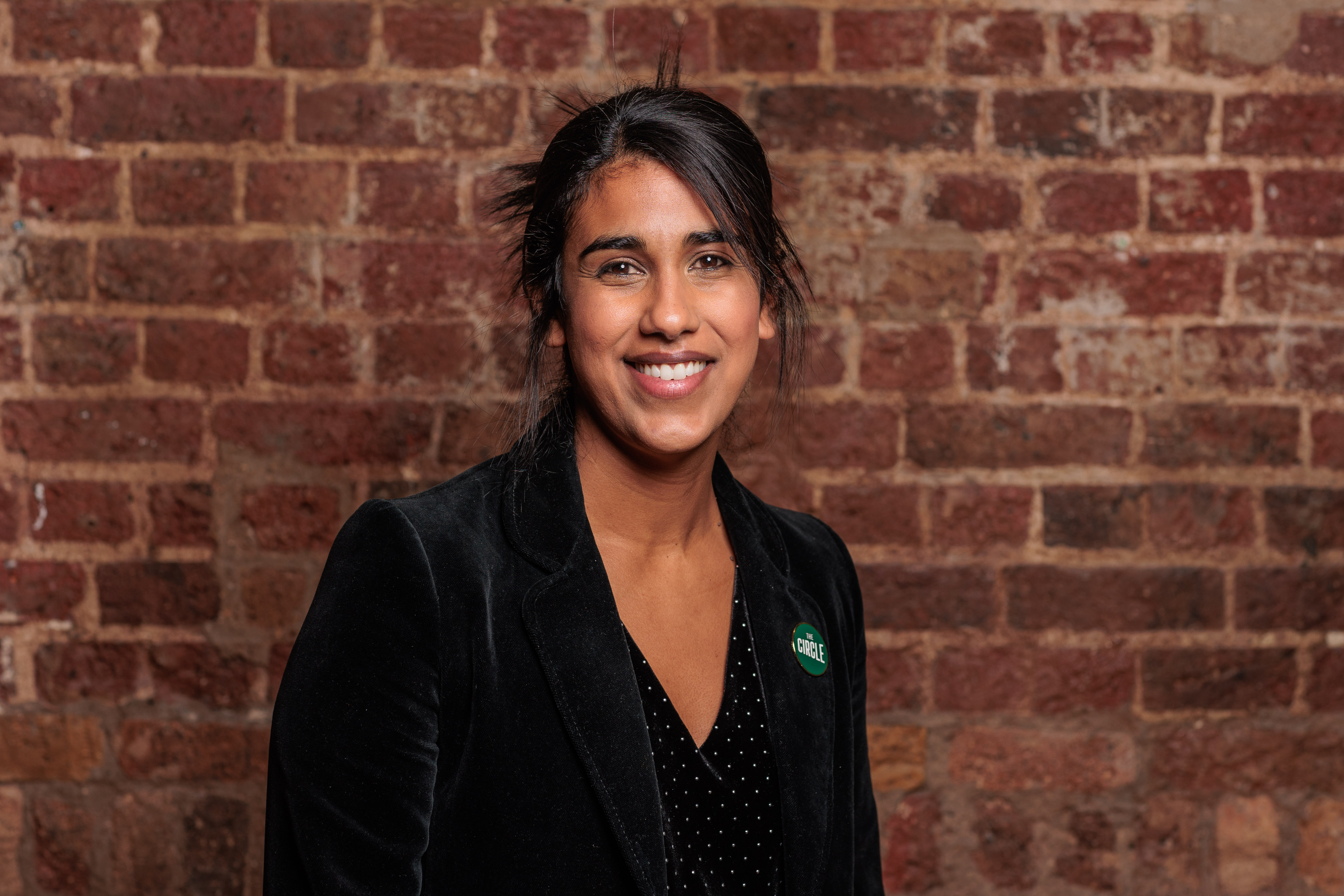Raakhi Shah, CEO of The Circle talks about some of the charity's biggest challenges and achievements.
________________________________________________________________
Tell me a bit about your role and your route into the charity sector?
I’m CEO of The Circle, a global feminist charity set up by Annie Lennox and other leading women, focused on driving economic independence and ending violence against women and girls through campaigning and partnering with grassroots organisations.
I’ve recently marked 20 years working in the charity sector. Growing up, a number of things made me want to work in social justice - the lasting impression of world events such as the Rwandan genocide, my heritage from Africa and South Asia and being from a working class, migrant background.
After studying International Development and Politics at the University of Leeds, I got my first job at Oxfam, where I’d always wanted to work. Over the next seven years I worked with high-profile ambassadors, in the press office and within the humanitarian department, working on major campaigns such as Make Poverty History, DEC appeals and the Robin Hood Tax. I then joined UNICEF UK, heading up their ambassador relations team, working on huge partnerships like Soccer Aid and spent a period seconded to the Vietnam office. My years of experience and work with a variety of teams across large organisations positioned me well to take on the CEO role at The Circle in April 2020.
What have been some of the biggest challenges you and the organisation have faced?
I joined The Circle at the start of the pandemic which meant adapting to new technology, building relationships remotely and being sensitive to the impact of the pandemic on our community and partners. We were also going through a period of significant change – and moved from supporting a variety of women’s rights issues to a laser focus on ending violence against women and girls and driving economic empowerment. Balancing all of that meant being resilient and really clear on the charity’s vision.
Like any charity we continue to face challenges around generating vital income and we are concerned about the rise of populist politics impacting women’s rights.
What have been some of The Circle’s biggest achievements?
The Circle began 15 years ago as a small group of women gathered around a table determined to support the most marginalised women and girls. We have grown into an unstoppable force that’s challenged unjust systems, fought for a living wage and amplified women’s asks to those in power.
I am particularly proud that we have increased our impact twenty-fold in the last year, directly helping 88,000 women and girls through the grassroots organisations we fund. Our support has ensured, for example, that women in Nigeria are upskilled with STEM and literacy skills, police are trained to better-protect women from violence in South Sudan, a range of support for victims of sexual violence in Kenya has been provided.
I recently visited our partner in Uganda - Women in Leadership – which supports survivors of gender-based violence through a helpline and training local women to become advocates for others experiencing abuse to change the mindsets of men. Many women share their stories in regular Break the Silence shows on regional radio. It embodies the idea of The Circle – empowering women to come together to dismantle societal stigma.
As well as maintaining our funding levels to continue our vital work, we’ve partnered with TikTok and Universal Music UK and recently announced our global feminist champions - passionate women’s rights activists who challenge the status quo by raising awareness of The Circle. They include Australia’s first Prime Minister Julia Gillard and iconic singer Skin from Skunk Anansie.
Tell me about some of the things you have campaigned on?
We’ve successfully campaigned for a new EU law that includes a living wage as a human right because we want fashion companies to pay a living wage in their supply chain. We are now campaigning for this to become UK law. We have a central campaign #MakeAStandFor1in3 calling for increased funding to grassroots women’s rights organisations across the globe tackling gender-based violence. We are active on a number of global issues affecting women’s rights, highlighting the humanitarian emergency in Sudan, calling for a ceasefire and the release of the hostages in Gaza and to end the gender apartheid in Afghanistan.
How can the sector increase diversity in a meaningful way in leadership positions?
A recent report by the Association of Chief Executives of Voluntary Organisations (ACEVO) revealed the huge lack of diversity in charity. I am one of just 7% of CEOs of colour in the sector and when I started my career I didn’t see any heads of department or directors who were of colour. Charities have much to do to ensure people from all backgrounds have the right environment to become leaders. This starts with good recruitment practices such as showing the salary, not making degrees mandatory, enhancing parental leave, and bringing in flexible working and job shares.
There needs to be a concerted effort for training and development for people of colour at charities, rather than a scattergun approach. If you don’t come from a background where you have leaders in your networks, how can you know what skills or experience you need to become one? I’d like to see regular sector-wide shadowing, and Q and A’s with leaders. Representation in media is also vital. Charities can and should track diversity of spokespeople, setting benchmarks and targets to improve.
How can charities use their role to maintain hope when there are difficulties around the world in shaping and maintaining women’s rights?
The recent US elections have been a bitter blow to the women’s rights movement, at a time when we are continuing to see the erasure of women from public life in countries such as Afghanistan and Iran.
As charities we need to expose those issues but we must always centre them through the experiences of the activists and organisations who are living in those communities and highlight the positive change they are making.
At The Circle we work with the most extraordinary women leading our local partners on the front-line, often working at their own peril. Empowering these partners and bringing together a community of solidarity across borders is the very ethos of global feminism. We showcase not just the need, but the hope through their incredible stories and work.
To find out more about The Circle and how you can support it visit thecircle.ngo
Charity Times video Q&A: In conversation with Hilda Hayo, CEO of Dementia UK
Charity Times editor, Lauren Weymouth, is joined by Dementia UK CEO, Hilda Hayo to discuss why the charity receives such high workplace satisfaction results, what a positive working culture looks like and the importance of lived experience among staff. The pair talk about challenges facing the charity, the impact felt by the pandemic and how it's striving to overcome obstacles and continue to be a highly impactful organisation for anybody affected by dementia.
Charity Times Awards 2023
Mitigating risk and reducing claims

The cost-of-living crisis is impacting charities in a number of ways, including the risks they take. Endsleigh Insurance’s* senior risk management consultant Scott Crichton joins Charity Times to discuss the ramifications of prioritising certain types of risk over others, the financial implications risk can have if not managed properly, and tips for charities to help manage those risks.
* Coming soon… Howden, the new name for Endsleigh.
* Coming soon… Howden, the new name for Endsleigh.
Better Society

© 2021 Perspective Publishing Privacy & Cookies











Recent Stories